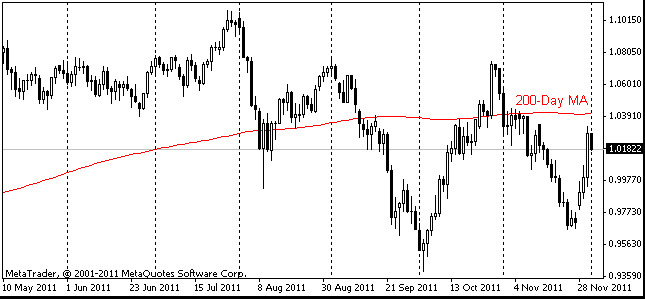EUR/usd
The moderate buying of the single currency on Wednesday morning stumbled over the wave of sales. The growth momentum of the pair was halted at 1.3060. Roughly in the same zone there had been a reversal a day before , but this time the bears were prepared better. By the middle of trading in the USA the pair had fallen to 1.2922. There are two reasons for the bears to be that self-confident. First of all, the auctions were not a success – three of the four bonds of different maturity demonstrated a higher yield. In the meantime the yield of the two-year German bunds has sharply declined (from 0.21% to 0.06%). It speaks about demand for safe assets and about growing hesitations around correctness of Italy's policy line. The second reason was appreciation of the dollar on the favourable retail sales statistics. As was reported by Census Bureau yesterday, the sales grew by 1.1% in February against the expected growth by 0.5%. The most encouraging moment was increase in retail sales excluding Auto and Gas, which made 0.4%. It reflects strength of the domestic demand in the country, where at the beginning of the year taxes were raised for most strata of the population. Growth of the dollar on positive US statistics is a relatively new correlation. The first signs of it appeared at the end of the previous year, then it clearly showed itself in the reaction to the payrolls and was confirmed on the retail sales data yesterday. Now the markets stake on the dollar as they believe that the US officials will want to cut down their asset purchase programmes on this stream of good news. It's noteworthy that for several years in a row the markets wrongly staked on reduction of stimulus, but then (in summer or autumn) the Fed got enough signals of the slowdown to intensify QE. So, let's wait with the forecasts about the end of QE. Anyway, there is a feeling that the euro may continue to decline further.

GBP/USD
The British pound felt rather good yesterday. The growth of the dollar on the favourable US statistics affected the sterling much less than the euro and many other currencies. But it is because the pound, which has been actively depreciating since the very January, is too overbought now. Today Britain's domestic news poses no threat. Yet, even the external background doesn't bode ill in regard to the macroeconomic statistics. The only news deserving attention now is the US PPI.

USD/JPY
It's been reported that the vote on the BOJ's new president and its two vice-presidents will be taken on Friday. This means that tomorrow morning the Japanese currency may suffer quite strong fluctuations. The market is quite ready for them. usdjpy has been consolidating around 96.0 almost all week long.

AUD/USD
Good news from Australia. As has been often the case in the recent years, the labour market is again a supplier of good news. Against the general expectations, the unemployment remained at 5.4% and employment grew to 71.5K, though mainly due to the rise of part-time employment. Another positive signal is growth of the participation rate from 65.0% to 65.3%. The aussie in a flash has surged up by almost a figure and now, having settled down a bit, is trading at 1.0360.
